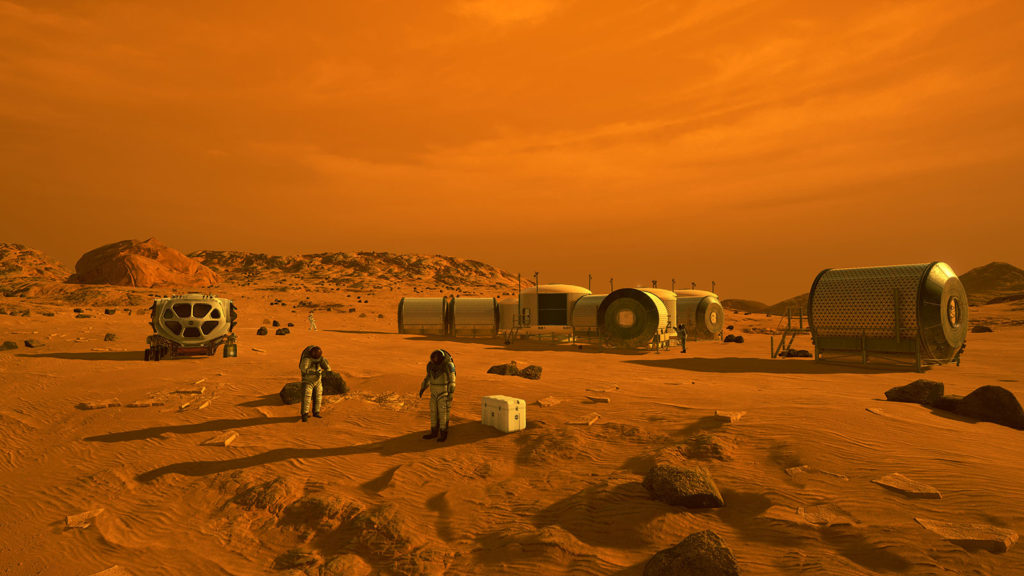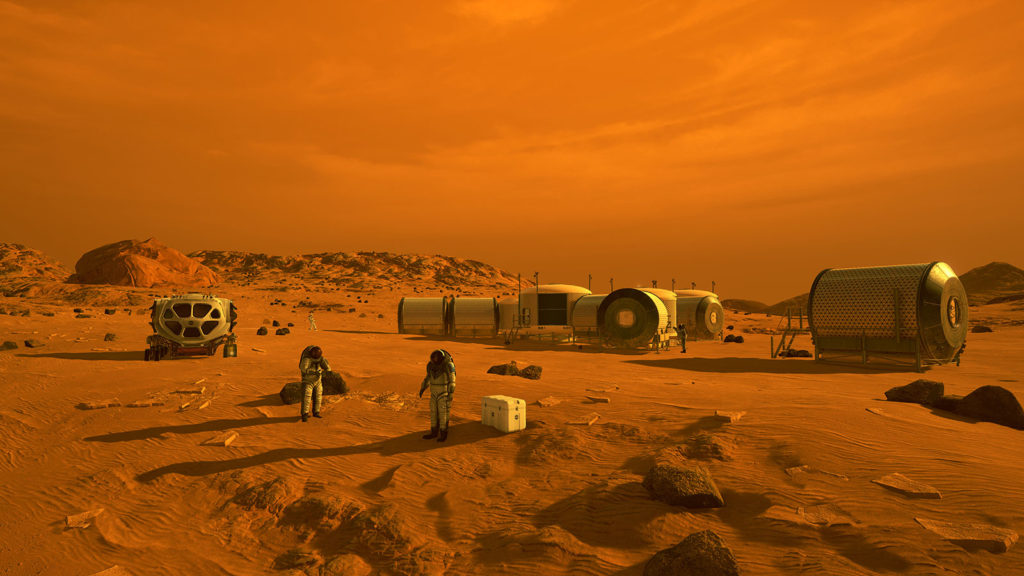Scientists consider making the move to space as quality of life on earth rapidly declines
Is it possible for the human race to live in space? Until recently, this age-old question had been pondered more by science fiction writers than the general population. With the irreversible effects of climate change creeping upon human civilization, even the most radical options for the future deserve consideration. In fact, the relocation of our species to another planet no longer seems so ludicrous or far-fetched that it belongs in a novel. But can this science fiction really become a scientific reality?
Is it possible for the human race to live in space? Until recently, this age-old question had been pondered more by science fiction writers than the general population. With the irreversible effects of climate change creeping upon human civilization, even the most radical options for the future deserve consideration. In fact, the relocation of our species to another planet no longer seems so ludicrous or far-fetched that it belongs in a novel. But can this science fiction really become a scientific reality?
Is it possible for the human race to live in space? Until recently, this age-old question had been pondered more by science fiction writers than the general population. With the irreversible effects of climate change creeping upon human civilization, even the most radical options for the future deserve consideration. In fact, the relocation of our species to another planet no longer seems so ludicrous or far-fetched that it belongs in a novel. But can this science fiction really become a scientific reality?


There are only two other celestial bodies in orbit near Earth; our Moon and the planet Venus (1). There are minimal vital resources on the Moon, and so the transition of life to it would require much assistance and transportation of resources from Earth to the Moon; far more than would be required to live on Mars. The Moon, unlike Mars, has no atmosphere to form a barrier against incoming radiation. This radiation could cause fatal health conditions, and would mean that millions of dollars would have to be spent on an artificial barrier (2). Additionally, a day on the Moon takes approximately one month on Earth (1). Thus, the moon simply is not a habitable planet for the human race.
On Venus, the conditions are even less habitable than the moon. The average temperature is over 400 degrees Fahrenheit, the barometric pressure is comparable to the pressure at 900 meters underwater on Earth, and there are occasional showers of acid rain (1). Finally, Venus has nights that last for approximately 120 days, which is clearly not in the range of adaptability for humans (1).

With that being said, we are nowhere near completion of the beginning phase of this project. Moving entire civilizations across planets is a feat that has yet to be completed, and won’t be for decades to come. However, the ever progressing idea continues to be researched and debated. With the effects of climate change racing up on us, scientists are pressured to delve into this possibility, begin testing, and attempt to alter the conditions on Mars to be more habitable. With the constant addition of more information to the basis of this project, transitioning to Mars isn’t looking so impossible after all. So be on the lookout, and consider making the move to space when the time comes.
Bibliography
- MarsOne. (2021, March 11). Why Mars And Not Another Planet? MarsOne.
Retrieved from https://www.mars-one.com/faq/mission-to-mars/why-mars-and-not-another-planet
- InterestingEngineering. (2021). NASA Scientist: Yes, Humans Can One Day Live on Mars. InterestingEngineering.
Retrieved from https://interestingengineering.com/nasa-scientist-yes-humans-can-one-day-live-on-mars

